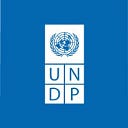Tapping into Azerbaijan’s tech talent to explore a smart future for water at a time of pandemic
By Nargiz Gulyeva and Sandra Ismanovski
One in three people currently live without safe drinking water and more than a billion people live in regions lacking sufficient water resources.
In the midst of the Covid-19 pandemic many millions of people cannot even access enough clean water to follow the WHO ‘s advice on washing hands.
In a future world in which the population will grow to almost 10 billion people, scarcity is not an option.
Water utilities across the globe need to adapt to the demands of a dynamic and highly deregulated and competitive environment for water. Adaptation is urgent for the entire water industry at a time of climate crisis and when demand for water will be surging with the reopening of economies during the ongoing COVID-19 pandemic.
This is a chance to turn water challenges into new technological, societal and business opportunities — for a water-smart society of the future — fostering circular economy.
Now is the time to shift gears to the next generation of water systems.
In today’s increasingly complex and uncertain world, we need to make optimum use of digitalization and big data, applying software, sensors, artificial intelligence and communications to make more informed decisions about water.
The Government of Azerbaijan and UNDP’s Accelerator Lab partnered to make the most of digital solutions emerging with the Fourth Industrial Revolution.
The aim of our partnership is to map existing ideas and solutions and create a platform of partners to work together on finding fresh and innovative ways of tackling water-related issues.
As a first step in starting a national dialogue on digital water, Azerbaijan’s Ministry of Ecology and Natural Resources and UNDP launched the country’s first ever water-themed hackathon — to crowdsource tech ideas and solutions for preserving water quantity and quality and alleviating stresses on water supplies.
We are inviting tech gurus, innovators, water experts and citizens to join us in coming up with creative smart water solutions.
What kind of solutions are we looking for?
We are looking for innovative tech solutions to a range of water-scarcity-related challenges, including solutions to reduce the stress on water supply, to track inefficient water use in homes and industries, to enhance water infrastructure and water resource management, as well as preventative solutions for increasing the country’s resilience to floods.
Ideas for tackling this complex issue could include efficient ways to inform farmers about new irrigation techniques that make optimum use of soil and meteorological data.
Ideas to ensure more rational use of water in agriculture in general could include the design of data-based systems able to identify water saturation of farmland according to different types of crops.
Data-based systems could also be designed for water-users by building a survey data portal to register natural and anthropogenic water incidents in regions. or develop mobile apps that could help track water use in homes, hotels, buildings and industries.
Smart ideas for enhancing the water supply infrastructure could include solutions to prevent water loss, for example by identifying water leakages in pipes of houses, hotels, factories and other buildings.
Ideas for enhancing water resource management could include ways to obtain real-time data on the current state of water bodies — such as rivers, lakes and groundwaters.
Other solutions could include early-warning systems for floods and landslides, optimizing flood forecasting, establishing more efficient use of river waters at times of high-waters, and new ways of raising public awareness about how to save water at home.
We believe that digital technologies can play a decisive role in helping collect valuable data in real time and bringing about more rational use of water resources to reduce the impact that climate change, economic and population growth have on water consumption.
We need to invest in a digital future for water now. We cannot afford not to.
